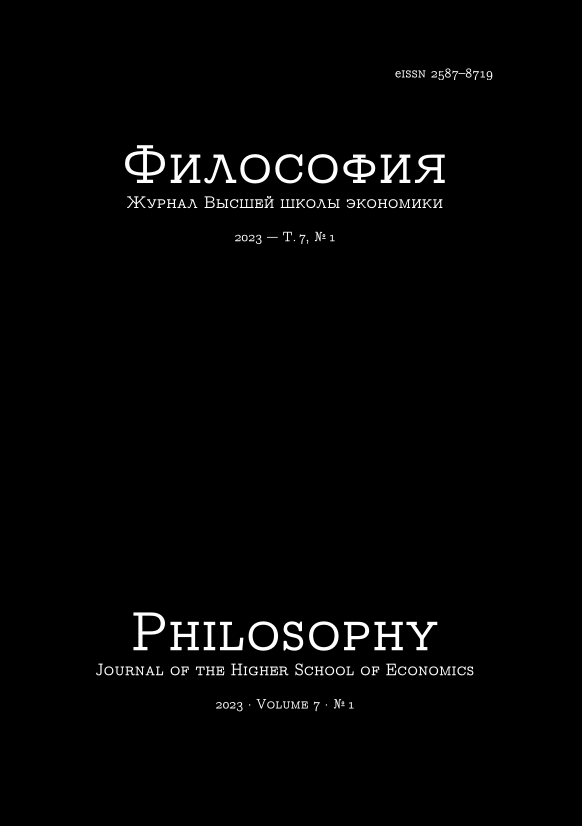Philosophy. Journal of the HSE. Vol. 7 No 1
Abstract
We proudly mark the seventh anniversary of our journal with this twenty-fifth issue. The journal is evolving, and we hope for the better. We are transitioning from thematic issues to thematic headings, which we believe will foster a more open atmosphere for authors and readers of the journal. On a larger scale, the structure of the issues will remain the same, featuring articles, translations, new sources, and reviews of scientific literature.
In the opening article, Svyatoslav Kaspe reflects on the connection between politics, war, and Christian love in contemporary political culture. He believes this kind of love is an effective institutional channel for partial de-autonomization of the political and, in turn, may help to curb the war. Oleg Kharkhordin, the author of the second article, shifts the focus to the theory of mixed government. Through the analysis of Dion Cassius' text, he emphasized that the correct version of this theory allows for the simultaneous existence of different forms of government. Aleksey Zygmont's article follows, bringing readers back to the concept of political love, this time in the form of political martyrdom.
In the Research section, Oleg Nesterov, Oksana Koval’ and Yekaterina Kryukova articles take the reader away from political emotions to modern society's political and socio-philosophical problems. In the first article, the author comes to the conclusion that imposition of paid digital leisure (i. e., nudging) will lead to leisure becoming a form of digital labor, resulting in a person losing freedom and becoming involved in new forms of dependence, creating a new type of labor and economic slavery. The second article analyzes Michel Foucault's essay This Is Not a Pipe and Rene Magritte's painting The Treachery of Images, formulating three basic principles of “emancipated” aesthetic judgment from Foucault's groundbreaking approach to the interpretation of Magritte's work.
Yevgeniy Miroshnichenko's article builds upon his previous study of zaum’ language, published in one of last year's issues. Yuriy Romanenko delves into the intricate relationship between philosophy, power, and evolution, utilizing Vladimir Bibikhin's writings as a foundation for his exploration.
The section is concluded with four more articles. Igor’ Dmitriyev, the first author, reflects on the clock metaphor in modern European philosophical thought. He notes that in Early Modern times, the clock was associated with mechanical philosophy, as seen in the works of R. Boyle and R. Descartes. Over time, however, the clock metaphor lost popularity, becoming a symbol of regulation and oppression, an unfree mode of action, and rigid determinism. Ivan Karpenko delves into the concept of free will in a simulated world, using the example of an open-world video game. He illustrates how the observable universe can be seen as one of the many potential realities of the multiverse and how the idea of free will can be explored in such a world.
Sergey Shevchenko examines the difficulties of ethical expertise and the potential pitfalls of those who conduct such research in science, as they may find themselves mentally situated between an imagined public and scientists. Mikhail Voloshin's article on the contingent of genetic information sparked a debate with Ivan Kuzin, whose article was published in the second issue of our journal last year.
The Translations and Publications section features two interviews conducted by Timur Atnashev with Vitaliy Kurennoy and Aleksandr Marey. Both researchers discuss the problems of contemporary political philosophy and the university teaching of philosophy in Russia. It is worth noting that these interviews are only a small part of a larger project by Timur Atnashev, and we look forward to seeing more of it in our journal. These interviews were taken back in 2021 and now serve as a time capsule of the past, a reminder of what was but is no longer.
Alexander Pavlov and Yuriy Razinov's reviews, along with Maxim Gorbachev's reflections on the book, bring the issue to a close.
Editorial Team
Downloads

Copyright (c) 2023 Philosophy. Journal of the Higher School of Economics

This work is licensed under a Creative Commons Attribution-NonCommercial 4.0 International License.





